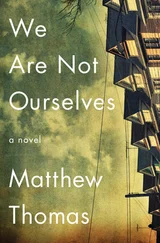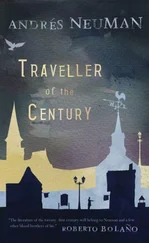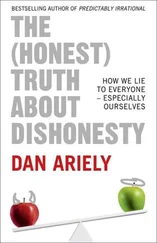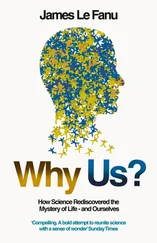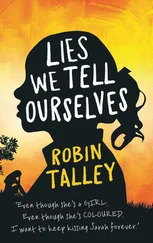
Dear, daily Mario. Today, without knowing why, I enjoyed myself quite a lot. Perhaps because nothing out of the ordinary happened.
The next step, and this is also going to hurt, will be to let joy in. If it comes. If I recognize it. I can already sense the next blow: not of loss, but of guilt because of fresh gains. Like today, for instance. Like this shameless sunlight pouring through our bedroom window, akin to a child smashing vases.
It scares me sometimes when occasionally, for a moment, I forget you. Then I hasten to write. You can’t complain. Even forgetting you reminds me of you.
I thought (beloved platitude) that the worst thing about losing you would be not having you. But it isn’t; you are still there, I think of you while I talk to myself. I don’t want to get too esoteric, so let’s just say you have become part of my organism. Now that I am growing accustomed to being alone (or at most, on a Saturday, being with I don’t know who), the worst thing is accepting that I am not in you. I am no longer part of you. Looked at in this way, I have also died.
But will you look at that sun, what a rascal.
I remember our conversations at the hospital. Not so much because of what we said to each other (there were no revelations, at least no spoken revelations), but because of the absurd miracle of being able to talk to someone who was dying, who was already leaving and who went on talking. I remember one conversation in particular. You were lying down with your eyes open. I was sitting by your bed. From time to time we stroked one another. Chastely, as once before. It was a mild afternoon. You seemed calm. You were gazing out of the window. Are you ready? I asked. And I squeezed your hand. Are you? you asked me. I don’t remember what my reply was.

I have just been to Ezequiel’s office. I didn’t call. I didn’t make an appointment. I simply turned up, sat in the waiting room, and stared at that door we know so well.
I exchanged a few words with the patients sitting next to me. They all assumed I was there for the same reasons as them. Every so often, they stood up, gave me a token smile, and went into the examination room. Someone else would immediately arrive to take their place.
I saw people our age, adolescents, old people, children. I saw fathers, grandfathers, friends, aunts. I saw men and women, some better dressed than others. They all looked ugly to me. They were all beautiful.
Have you been waiting long? a lady on her own enquired sympathetically. Quite a while, I replied, and you? All afternoon, she said, I prefer to get here early, it puts my mind at ease.
Suddenly Ezequiel’s voice filtered through the door, Dr. Escalante’s tone. It grew louder. It vibrated. It reached the doorway. It mingled with two other fainter voices. Then Ezequiel’s groomed head appeared, his whole body emerged, dressed in white. He was with an elderly couple, the man very serious, the woman trying to smile. Ezequiel stood between the two of them. He had a hand on each of their shoulders. As they stepped through the doorway, the three instantly dropped their voices. Their six feet stopped on the threshold of the waiting room. I focused on Ezequiel’s face. On his rippling eyebrows. On his way of speaking, almost without opening his lips. He said goodbye to the couple. I quickly lowered my head. I don’t think he saw me.
When the door closed once more, I stood up and left behind the elderly couple. They were taking small steps. I copied their rhythm. I walked with them. I followed them for a while, gazing at their backs.
There follows a list of the works cited by Elena in this novel. The translation of passages originally published in languages other than English was done by Nick Caistor and Lorenza Garcia. If writing allows us to talk to ourselves, reading and translating are very much like having a conversation.
A.N.
Aira, César. Yo era una mujer casada . Santiago de Chile: Cuneta, 2010.
Ariès, Philippe. “La mort interdite.” In Essais sur l’histoire de la mort en Occident du Moyen Âge à nos jours . Paris: Seuil, 1975.
Atwood, Margaret. “Let Us Now Praise Stupid Women.” In Good Bones . Toronto: Coach House Press, 1992.
Banville, John. The Sea . London: Picador, 2005.
Bobin, Christian. Autoportrait au radiateur . Paris: Gallimard, 1997.
——. La part manquante . Paris: Gallimard, 1989.
Bolaño, Roberto. “Literatura + enfermedad = enfermedad.” In El gaucho insufrible . Barcelona: Anagrama, 2003.
Chekhov, Anton, and Olga Knipper. Letter from Olga, August 19, 1904. In Correspondencia 1899–1904. Edited and translated from the Russian into Spanish by Paul Viejo. Madrid: Páginas de Espuma, 2008.
Ford, Richard. The Sportswriter . New York: Vintage, 1986.
Garner, Helen. The Spare Room . Melbourne: Text Publishing, 2008.
Gorer, Geoffrey. Death, Grief, and Mourning in Contemporary Britain . London: Cresset Press, 1965.
Gracia Armendáriz, Juan. Diario del hombre pálido . Madrid: Demipage, 2010.
Gwyn, Richard. The Vagabond’s Breakfast . Aberystwyth (U.K.): Alcemi, 2011.
Levrero, Mario. La novela luminosa . Montevideo: Alfaguara, 2005.
Marías, Javier. Los enamoramientos . Madrid: Alfaguara, 2011.
Matute, Ana María. Los niños tontos . Barcelona: Destino, 1956.
Moore, Lorrie. “People Like That Are the Only People Here: Canonical Babbling in Peed Onk.” In Birds of America . New York: Alfred A. Knopf, 1998.
Navarro, Justo. La casa del padre . Barcelona: Anagrama, 1994.
Némirovsky, Irène. Les Mouches d’automne . Paris: Grasset, 1931.
O’Connor, Flannery. “The Enduring Chill.” In Everything That Rises Must Converge . New York: Farrar, Straus and Giroux, 1965.
Ōe, Kenzaburō. A Personal Matter . New York: Grove Press, 1969; Una cuestión personal . Barcelona: Anagrama, 1989.
Ozick, Cynthia. “Puttermesser: Her Work History, Her Ancestry, Her After-life.” In The Puttermesser Papers . New York: Alfred A. Knopf, 1997.
Uhart, Hebe. “¿Cómo vuelvo?” In Del cielo a casa . Buenos Aires: Adriana Hidalgo editora, 2003.
Woolf, Virginia. On Being Ill . London: Hogarth Press, 1930.
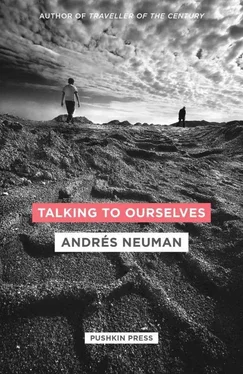

![Корнелл Вулрич - Eyes That Watch You [= The Case of the Talking Eyes]](/books/32103/kornell-vulrich-eyes-that-watch-you-the-case-of-thumb.webp)
